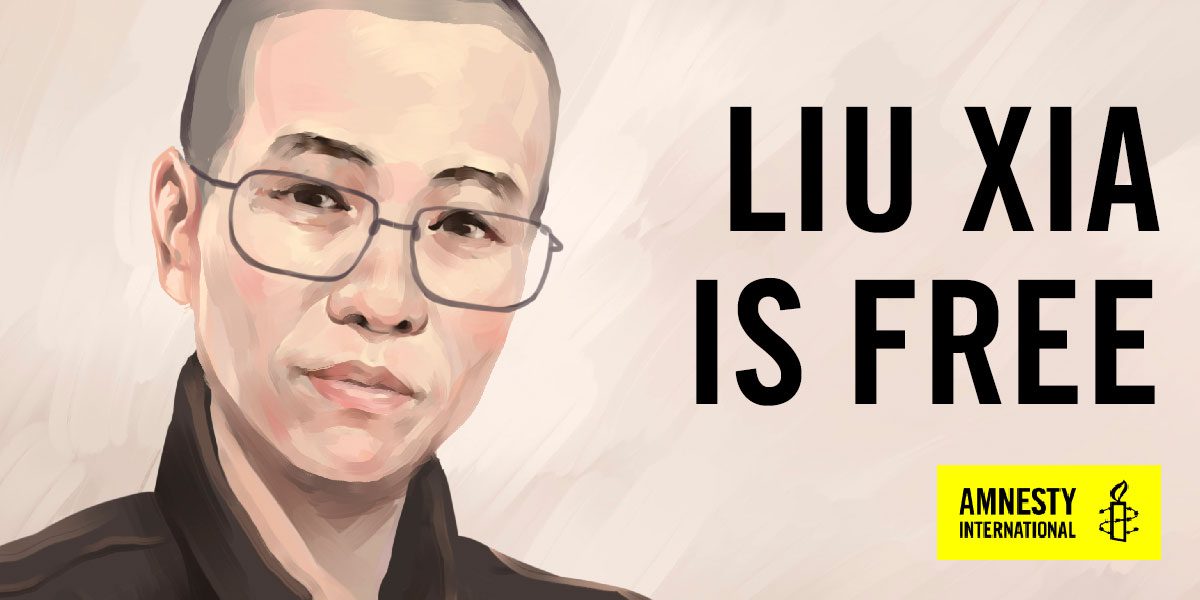Even Beijing admitted the Nobel laureate’s widow had committed no crime.
On July 10, the Chinese authorities finally ended their de facto house arrest of Liu Xia, a painter, a poet, and the widow of the late Nobel peace laureate Liu Xiaobo, and allowed her to leave for Berlin.
It’s worth considering what distinguishes Liu’s case from those of the many dissidents and activists who continue to be held in Chinese prisons or prevented from leaving the country. The two-pronged approach of private and public diplomacy paid off in Liu’s case, and may yet yield results for others, however dark the situation looks.
The first thing to remember is that Liu, unlike her husband, who was tried for “inciting subversion of state power” in 2009, was never accused of any crime by the Chinese government. In this respect, she differs from the dissident writer Qin Yongmin, who was sentenced to 13 years’ imprisonment for “subverting state power” the day after Liu flew to Germany, or the Uighur scholar Ilham Tohti, who was imprisoned for life for “separatism” in 2014. As questionable as the charges against these two and others may be, their trials at least adhered to a thin veneer of judicial process.
By contrast, Liu never faced any charges in court or had any opportunity to present a legal challenge to her treatment. The only reason she was subjected to illegal house arrest for eight years was her unyielding support for her husband, Liu Xiaobo.


